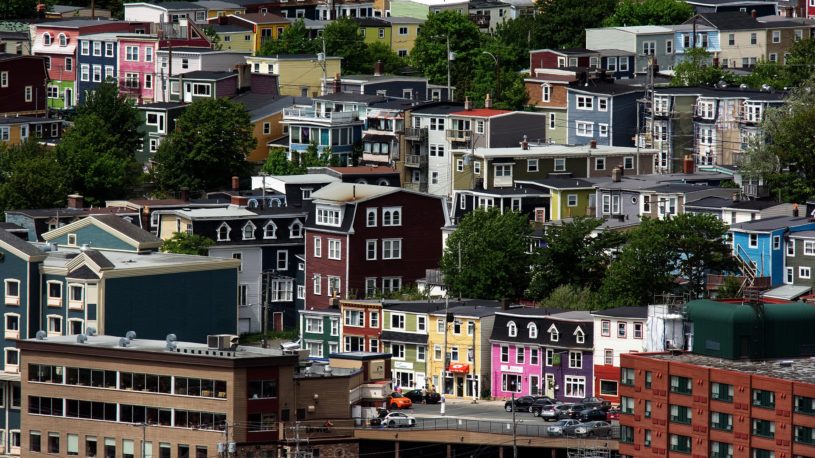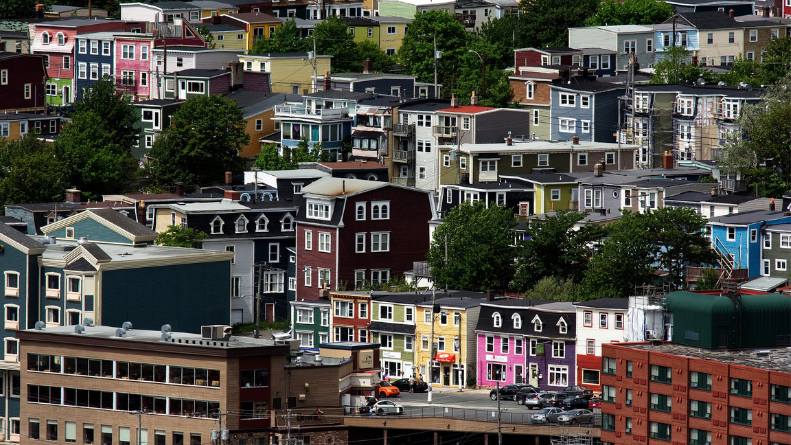What is the Global Housing Crisis?
A survey conducted by the Lincoln Institute of Land Policy (LILP), conducted in 2019, revealed something quite remarkable: 90% of the 200 cities around the world that were polled are viewed as unaffordable to live in. This was based upon house prices and median income. The global housing crisis has only been exacerbated due to the pandemic, and government stimulus spending to prop up economies is unsustainable. The LILP survey has revealed something else that we need to take note of: even though economic growth and employment might be boosted due to household debt in the short run, spending by households will be forced to cut back to service these loans.
This result in the curtailment of discretionary spending means that, in the long term, debt will damage the economy, and therefore, affordable housing will not only benefit homeowners, but it will also benefit the economy by increasing discretionary spending on other consumer goods and services. In other words, when household spending is cut right back to only essentials like food, fuel, and rent/mortgage payments, other goods that keep the economy ticking over, are simply unaffordable.
House prices across the world have risen sharply between the summer of 2020 and the first half of 2021. For example, in the United States, house prices rose by 11% during this time, the fastest they have done in about 15 years. New Zealand saw a hefty 22% rise in house prices.
The rise in house prices is one side of the coin; the other side is increased demand for more housing, especially in city centres where transport links are optimal. Increased demand for housing is caused by various factors, which include growing populations and changes in demographics.
The lack of affordable housing being built
The pandemic has exacerbated the housing crisis with the so-called “race for space,” but housing was already a serious problem prior to this. One contributory factor to the housing crisis was the high growth in the building of luxury tower blocks in major cities across the world, as developers focused attention on catering to high-end property investments. Consequently, this didn’t help the shortage in housing for low and middle-income families trying to get a foot on the property ladder.

Hong Kong has held the title of the least affordable housing market for 11 years, with the average house price at an astonishing 20.8 times the average annual household income. The public housing building scheme in place has done very little to address this growing disparity, and the current 5.5 year waiting time gives an indication of what an uphill climb it is.
The situation in Tokyo is different; it is one of the only cities to have managed to keep on top with housebuilding to meet demand for all classes. Tokyo managed to achieve this largely by deregulation of the housing market. This deregulation translated into no rent controls, and less restrictions on things like height and density of the buildings. For the last ten years, Japan has managed to build approximately one million homes per year.
House prices in the United States have increased by about 40% in the last 20 years, resulting in the median home in 200 American cities being worth about $1 million, rendering homeownership by the majority of Americans an unrealistic possibility. Indeed, the National Low Income Housing Coalition has found that someone working 40 hours a week on minimum wage cannot afford to rent a two-bedroom apartment. There is a housing shortage in the US, and this is partly down to exclusionary zoning laws, which mean that some areas have bans on new developments.
The exponential rise in the cost of construction materials has also played a part in housing shortages, which have been made worse by the pandemic and supply chain issues. An ongoing trade war has resulted in higher import tariffs on steel, aluminium, and other materials. The pandemic, for its part, meant that housebuilding output fell in April 2020 by 40% in the UK, and by 30% in the United States.
Where are the least affordable homes?
Least affordable international housing markets ranked by house price to income ratio for 2021:
- Hong Kong – 20.8
- Vancouver – 13.0
- Sydney – 11.8
- Auckland – 10.0
- Toronto – 9.9
- Melbourne – 9.7
- San Francisco – 9.6
- San Jose – 9.6
- Honolulu – 9.1
- Los Angeles – 8.9
Source: Demographica International Housing Affordability Survey
What can, and is being done to tackle the global housing crisis?
Cities across the world are working on solutions to the housing crisis. Tackling the crisis will need to involve fulfilling UN targets for Sustainable Development Goals (SDG), as per Goal 11 to “make cities and human settlements inclusive, safe, resilient and sustainable.”
Some examples:
Australia – The Australian authorities in Sydney have launched an initiative with the private sector and community housing groups to develop and renovate 23,000 social housing units. In Melbourne, an apartment project was launched in 2018 to improve home ownership, where the majority of the apartments were sold at a subsidised rate via innovative funding mechanisms.
India – innovation in construction materials has led to cheaper building. Glass fibre reinforced gypsum panels use less steel and concrete, which reduces costs and saves valuable resources. Houses built using these materials will cost considerably less and be more affordable.
Utilising new building technologies can go a long way in helping to mitigate the global housing crisis, although it will not be enough on its own. Some of these new technologies are not only quicker and cheaper, but they can also help alleviate the environmental impact by reducing C02 emissions and construction waste. A few of these technologies include 3D printing and bio-manufactured materials.
Financial solutions
Innovative financing schemes can help address a major issue for many trying to get access to mortgages, because they either don’t have employment in the formal economy, or don’t have official land titles. In addition to this, access to mortgages is hindered by the requirement for proof of income and down payments. Advancements in financial technologies (Fintech) can help solve these issues by underwriting informal incomes so these workers can obtain a housing loan. Likewise, blockchain technology can help with land titles and guarantee funds.
Renting solutions
There are many people that aren’t in the position to buy a home, or indeed even want to buy one. A focus predominantly on home ownership is proving counterproductive in solving the global housing crisis. Rent-to-own platforms, for example, are popping up all over the world to help those that fall within this category. Such rental platforms can play an important role in supporting low-income households, as well as refugees and others finding it hard to find suitable rental housing.

Most homebuyers will need to take out a mortgage loan to finance their home. However, to qualify for a mortgage, you will need a good credit score and substantial savings for the deposit. Because of these requirements, the traditional route to buying a home is closed off for many people.
This is where the rent-to-own scheme can come in to help where households can rent for a period, with an option to purchase it before the lease has ended.
Modular homes
Modular homes have quick turnaround build times and have low energy requirements. Unlike prefabricated construction in the past, modern modular apartments are energy efficient and built to last.
Modular homes can be built using sustainable materials and construction techniques, incorporating eco-friendly solar panels and rainwater collection systems, resulting in more environmentally friendly homes at affordable prices. Since a lot of time can be saved with building modular homes, as the foundations can be laid while the modular components are manufactured in a factory to high specifications, this can result in many more homes being built at a faster pace.
Another issue is addressed which is exacerbating the housing crisis: a lack of skilled labour in many countries. Modular homes’ offsite construction techniques require less builders involved in the process.
Summary
The global housing crisis is a very complex issue that will require solutions from a large variety of innovations, with each country and region facing their own unique problems. Apart from the important factors of build time, cost, materials, land availability, environmental issues etc, it will also likely require prudent government and social policies relating to population growth and family planning. Let’s be realistic about this: we are living on a finite planet with finite resources, and addressing such thorny issues can help with the demand side of the equation.
ARE YOU READY TO START INVESTING?
Subscribe to our mailing list now for exclusive deals, investment guides and the latest information from the property market.







